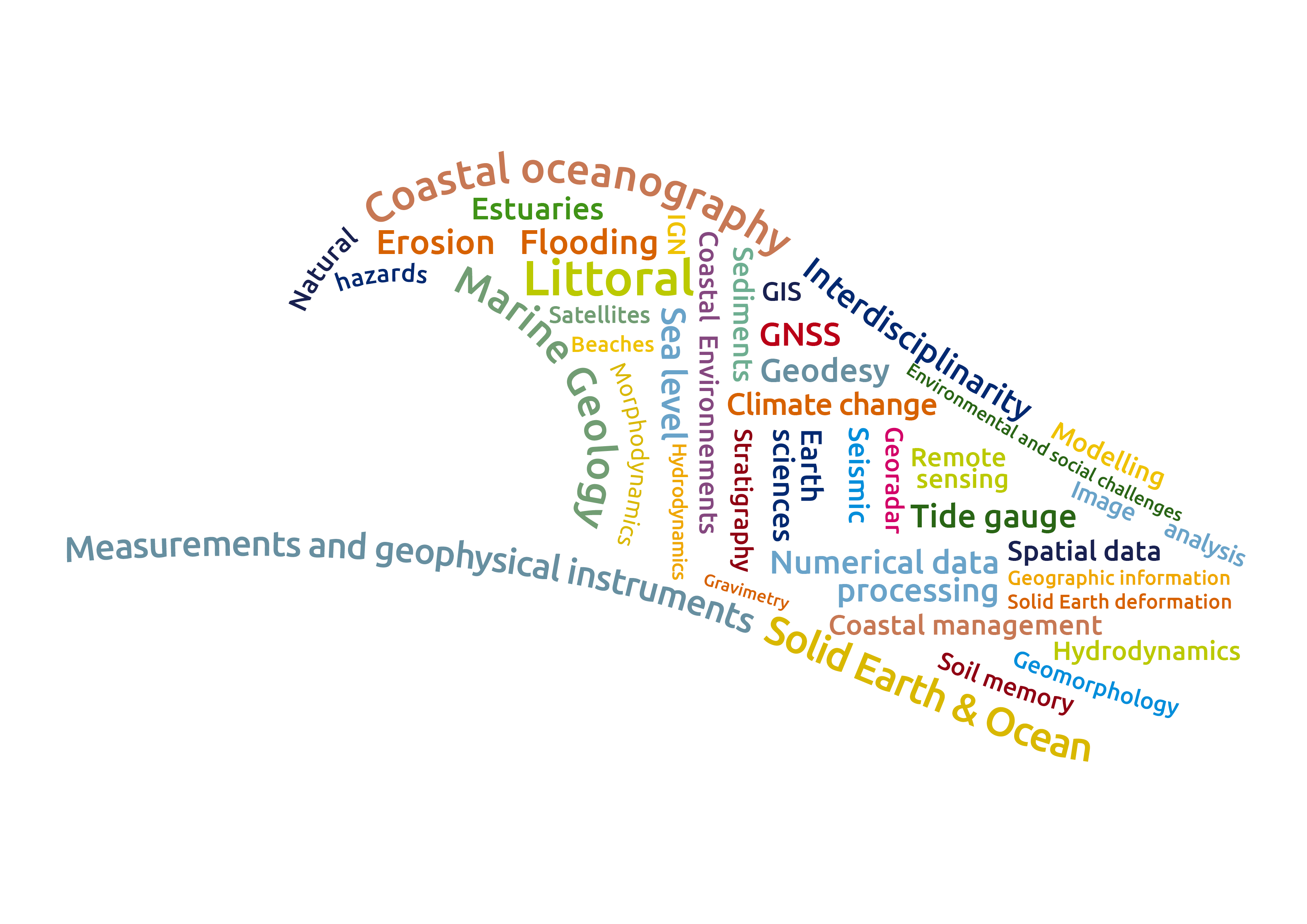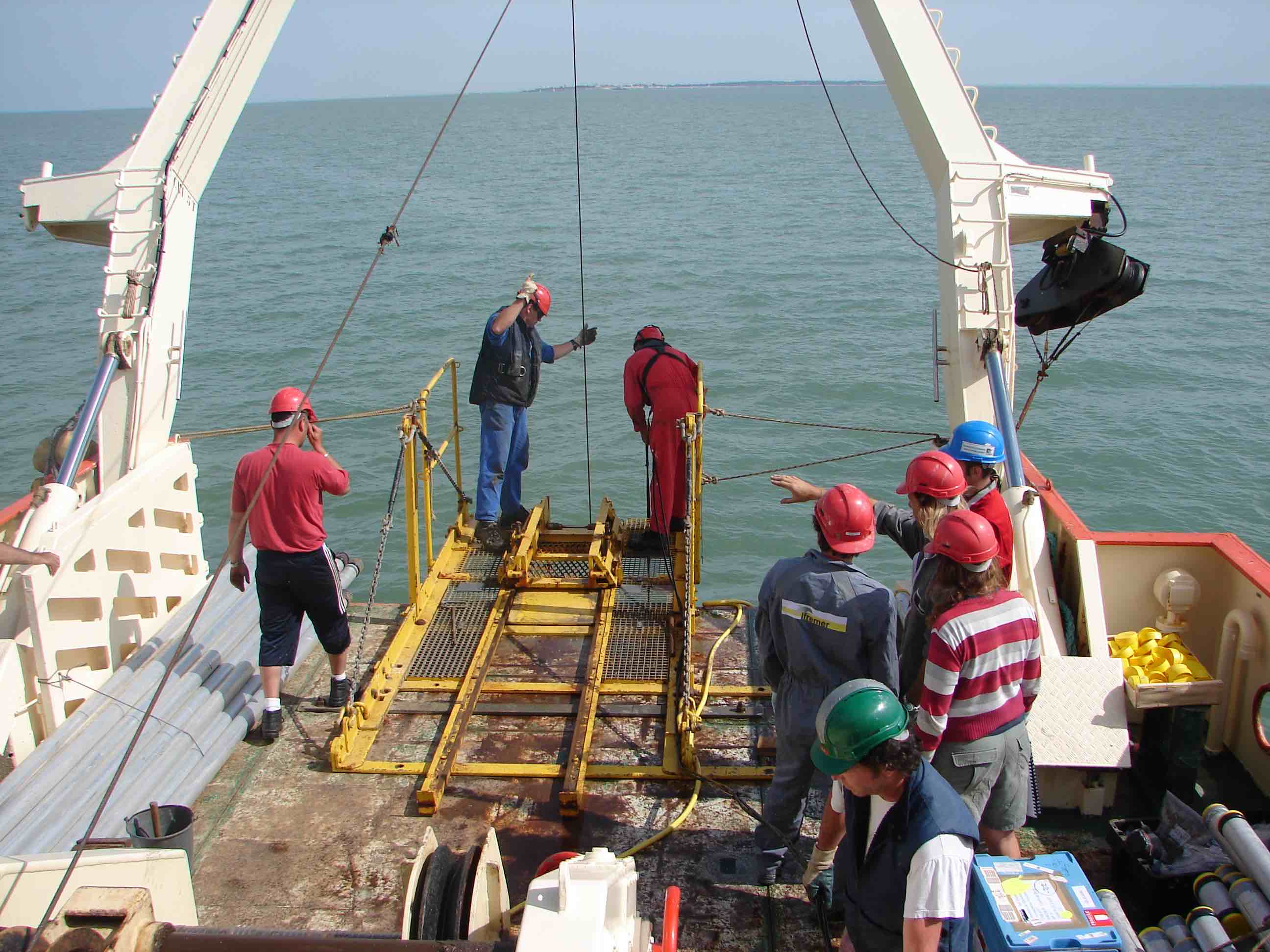
Shangai’s ranking of La Rochelle University for this academic subject
Objectives
The curriculum entitled “Geosciences and Coastal Geophysics” (GGL) provides the fundamental competences, both theoretical and practical, in Geophysics, Geodesy, Marine Geology and Coastal Oceanography. Having successfully completed this course, graduates will be able to handle both land and marine geophysical instruments and will be skilled in data acquisition, scientific computation, data analysis and numerical modelling. This curriculum trains students to rigorous scientific thinking based on an up-to-date knowledge of the coastal zones. Graduates will be able to conduct interdisciplinary reflective thinking, to make diagnoses, to propose and/or simulate possible evolutions and strategies to meet the society’s needs. This MSc prepares students for environmental engineering or consultancy positions.
Skills developed
Upon completion of the training, graduates who have completed this major will be able to:
- understand and apply the theoretical and practical knowledge acquired in marine and terrestrial geophysics, geodesy, marine geology and coastal oceanography,
- deploy geophysical land- and sea-based instruments, collect and structure the measurement results,
- apply scientific computational methods, numerical modelling and data processing for geosciences and coastal geophysics,
- develop programming codes allowing to solve quantitative or qualitative environmental problems, building on advanced information analysis tools
- apprehend coastal issues, display critical thinking and apply rigorous reasoning, based upon state-of-the-art knowledge in geosciences and coastal geophysics,
- conduct an interdisciplinary reflection, manage the complexity, establish a diagnosis, and propose and/or simulate the possible evolutions of physical objects from the coastal environment to help answering the societal needs,
- conduct environmental projects within interdisciplinary working groups.
Organisation
During the first 3 semesters of the training, the major is taught in the form of 3 Teaching Units (TU) of 60 hours each. Some courses are modularized into 3 consecutive weeks, others are spread across 9 weeks. The majority of courses in the first semester are taught in English, and for most courses that are taught in French, support material and slides are provided in English. The evaluation of the courses takes place all along the semester, at the end of each TU. At the end of the second semester, a compulsory internship of 6 to 8 weeks is integrated into the curriculum. Similarly, the fourth semester of the master is devoted entirely to a 6-months final internship.
For more information, access the full course description (in English for courses given in English, in French otherwise).
Career
This major trains specialists in environmental issues who have an integrated vision of environmental issues, particularly in coastal areas. More than 75% of graduates of this major find a job corresponding to their skills within 6 months after the end of the training. Positions occupied by former graduates include:
- environmental project manager
- environmental study leader
- scientific research (in government, industry, or academia)
- design engineer
- research engineer
Finally, the structures and organizations that recruit our graduates are varied:
- public and private entreprises (within their “environment division”)
- environmental consulting firms
- natural parks, reserves, marine protected areas
- non-profit associations
- governmental agencies (BRGM, Shom, …)
- NGOs
- public research organisations (CNRS, IRD, IFREMER, …)
